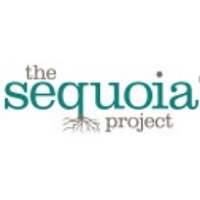 Subgroups Will Address Compliance Best Practices for Health Care Providers, Health IT Developers, and Health Information Networks/Health Information Exchanges
Subgroups Will Address Compliance Best Practices for Health Care Providers, Health IT Developers, and Health Information Networks/Health Information Exchanges
At its annual member meeting on December 15, 2020, The Sequoia Project (@sequoiaproject), a non-profit dedicated to solving health IT interoperability for the public good, announced the launch of three new community subgroups under its Interoperability Matters Information Blocking Workgroup. The three initial subgroups cover the actors defined in the information blocking regulations: healthcare providers, health IT developers, and health information networks (HINs)/health information exchanges (HIEs).
The subgroups were established to reflect the issues facing distinct actor categories and other communities affected by the Office of the National Coordinator for Health Information Technology’s (ONC) final rule on interoperability and information blocking, the Office of Inspector General’s (OIG) proposed rule on information blocking enforcement and any related future rulemaking. While initially starting out with three subgroups, The Sequoia Project expects to expand to more subgroups over time.
“We’re hoping these subgroups help communities address specific operational issues and best practices regarding information blocking regulatory compliance and implementation,” said Mariann Yeager, CEO of The Sequoia Project. “The Information Blocking Workgroup has done a great job setting up these subgroups, and we look forward to addressing the specific needs of our communities.”
The Information Blocking Workgroup is part of The Sequoia Project’s Interoperability Matters initiative, which engages experts from across the healthcare and health IT communities to identify and prioritize pressing challenges to nationwide health information sharing. The Information Blocking Workgroup is focused on the practical implications, as well as unintended consequences of, the relevant ONC and OIG rules. While the Information Blocking Workgroup focuses on broader implications of the proposed rules, the subgroups will explore more discrete issues and opportunities relevant to specific actor categories.
Subgroup participants will be selected based on identified needs by The Sequoia Project staff, workgroup co-chairs, and subgroup chairs. Subgroups will be kept small to enable effective discussions and will have a diverse representation of subject matter experts with strong expertise in information exchange and information blocking-related issues. Each will be primarily composed of diverse members from within the applicable actor community, with additional members reflecting the perspectives of the other actor categories and data requesters (e.g., consumer apps). The membership will draw from three primary sources, including the Interoperability Matters Leadership Council, Information Blocking Workgroup members, and participants in The Sequoia Project’s initial Information Blocking Compliance Boot Camp.
“We’re excited to launch the three new subgroups that will address the practical needs of specific communities in regard to evolving information blocking regulatory activities,” said Paul Uhrig, chief legal officer at Bassett Healthcare Network and Information Blocking Workgroup co-chair. “By sharing best practices and identifying key issues from those on the ground, we can accelerate progress.”
The subgroups will launch in January 2021. Final participants of each subgroup will be announced soon. For more information on The Sequoia Project’s Interoperability Matters initiative and to stay updated on subgroup announcements, visit the Interoperability Matters website.
About The Sequoia Project
The Sequoia Project is a non-profit, 501c3, public-private collaborative chartered to advance implementation of secure, interoperable nationwide health information exchange. The Sequoia Project focuses on solving real-world interoperability challenges, and brings together public and private stakeholders in forums like the Interoperability Matters cooperative to overcome barriers. The Sequoia Project is also the Recognized Coordinating Entity (RCE) for the Office of the National Coordinator for Health IT’s Trusted Exchange Framework and Common Agreement (TEFCA), for which it will develop, implement, and maintain the Common Agreement component of TEFCA and operationalize the Qualified Health Information Network (QHIN) designation and monitoring process.
